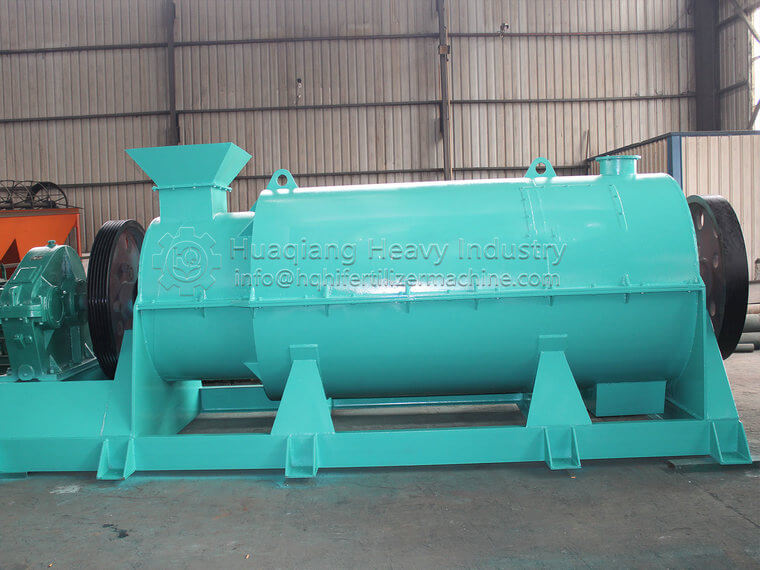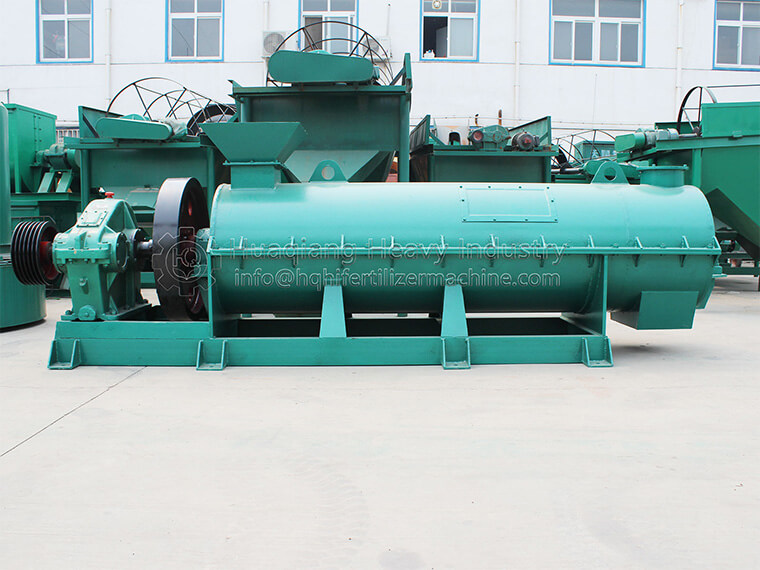The process flow of cattle and sheep manure bio organic fertilizer production line
The process flow of the cow and sheep manure bio organic fertilizer production line mainly includes the following steps to convert cow and sheep manure into bio organic fertilizer:.jpg)
Raw material collection: Collect cow and sheep manure as the main raw material.
Pre treatment: Remove large impurities such as stones and plastics from feces.
Crushing: Use an organic fertilizer crusher to crush feces to reduce particle size, increase surface area, and facilitate subsequent fermentation and mixing.
Adjust moisture and C/N ratio: Add an appropriate amount of water as needed to regulate the humidity of feces, so that they reach a suitable level of moisture for microbial activity.
Adjusting the carbon to nitrogen ratio (C/N ratio) usually involves adding some carbon source substances, such as sawdust, straw, etc., to facilitate microbial growth.
Mixing: Mix feces with regulators, microbial agents, etc. evenly to provide a suitable growth environment for microorganisms.
Fermentation: Stack the mixed materials in the fermentation tank for aerobic fermentation. During the fermentation process, regular flipping may be necessary to provide oxygen and dissipate heat.
Flipping: Use an organic fertilizer flipping machine to flip the fermentation materials, ensuring even fermentation and accelerating the decomposition of organic matter.
Aging: The fermented material needs to undergo a period of aging to stabilize the quality and effectiveness of the fertilizer.
Granulation: Fermented materials are granulated through an organic fertilizer granulation mechanism to improve the physical properties and ease of use of the fertilizer.
Drying: Wet particles are dried through a dryer to reduce moisture content and facilitate storage and transportation.
Cooling: The dried hot particles are cooled by a cooling machine to ensure the quality and safety of the fertilizer.
Screening: Use a screening machine to screen particles and remove particles that do not meet specifications.
Packaging: Weigh and package qualified granular fertilizers through an automatic packaging machine.
Quality inspection: Regular quality inspection of products throughout the entire production process to ensure compliance with organic fertilizer standards.
Storage and transportation: Store packaged bio organic fertilizers in a dry and ventilated warehouse, ready for transportation to the market or farm.
Environmental treatment: Throughout the production process, it is necessary to treat the generated waste gas and wastewater to meet environmental requirements.
The process flow of the cow and sheep manure bio organic fertilizer production line needs to be precisely controlled to ensure the quality of the final product. Through this process, not only can cow and sheep manure resources be effectively utilized, but also high-quality organic fertilizers can be provided for agricultural production, promoting sustainable development of agriculture.


.jpg)


.jpg)


